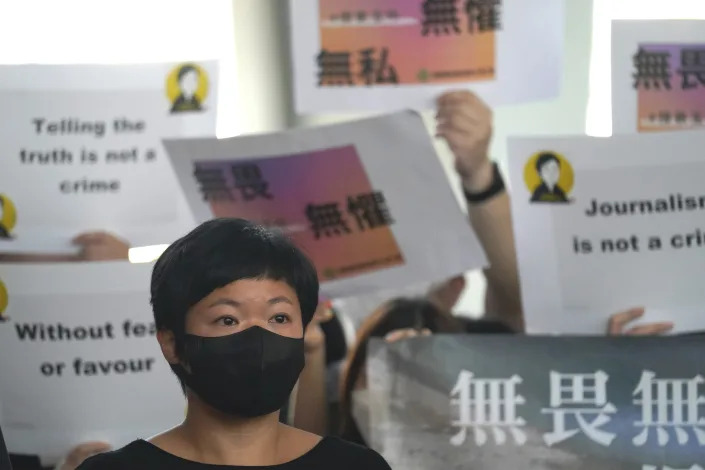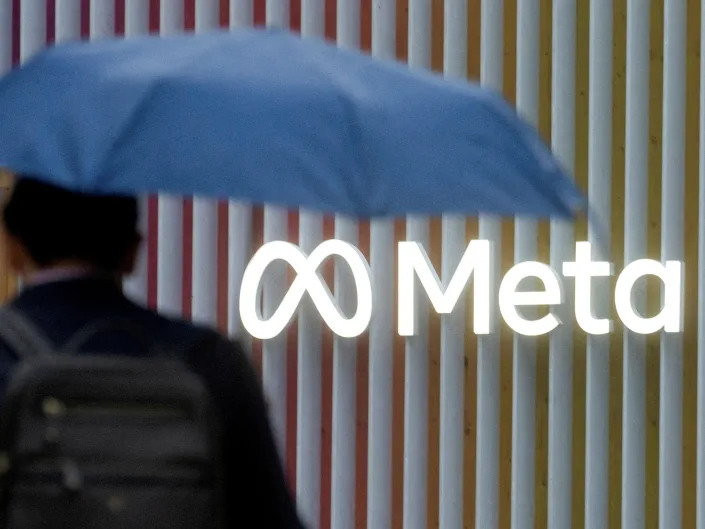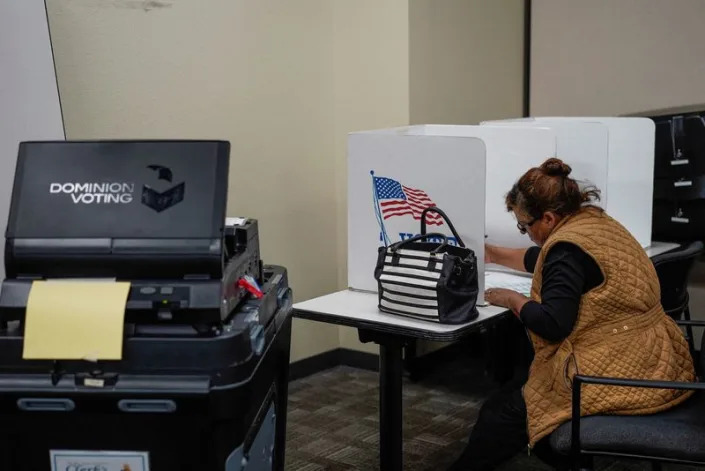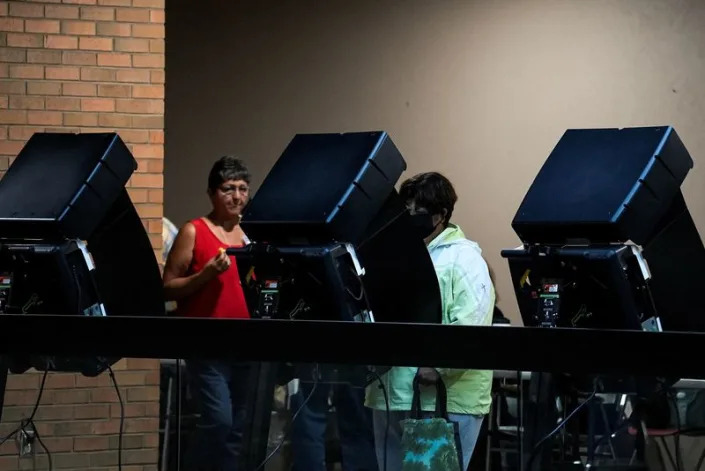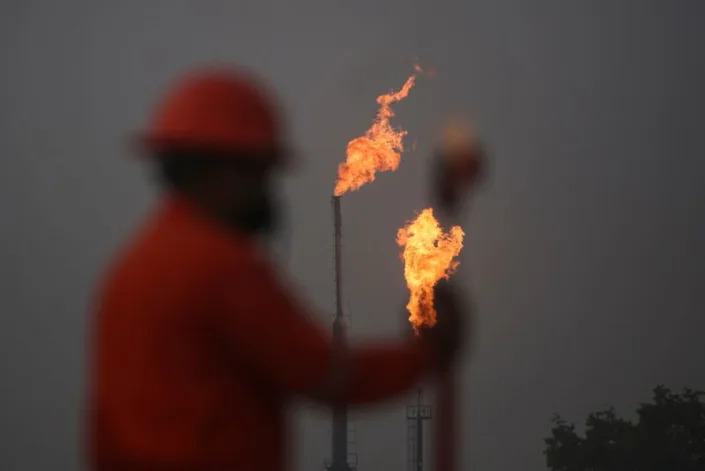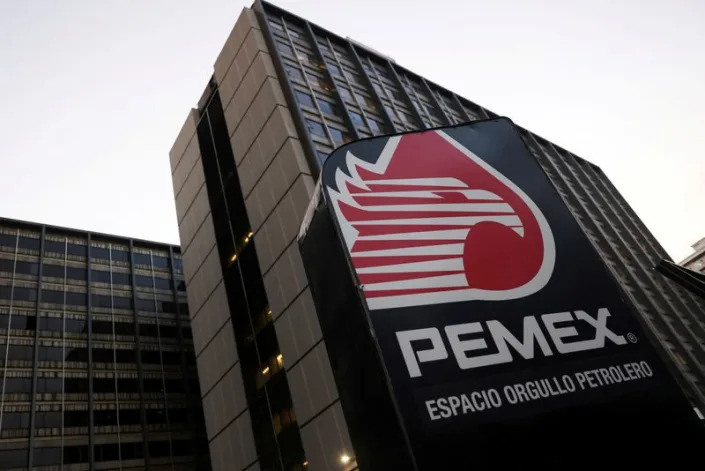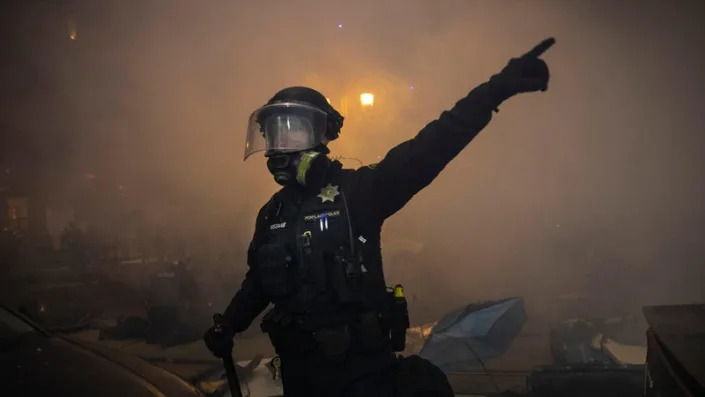Mon, November 7, 2022 at 2:30 AM·9 min read
The much-heralded gathering of global bankers and financiers ended on Thursday on an optimistic note about Hong Kong's prospects, as overseas attendees hailed their unhindered participation as proof that the city can put its coronavirus restrictions behind it and get back to business.
The message that was repeated and reinforced throughout the three days of the Global Financial Leaders' Investment Summit was that it is "business as usual" in Hong Kong, even if the city had been slower than other countries in opening its borders to corporate and leisure travel.
The fact that half of the 250 financiers from 120 global firms did manage to fly in from abroad - 40 of them being C-suite executives - underscored the message by Chief Executive John Lee Ka-chiu that "Hong Kong is back".
Do you have questions about the biggest topics and trends from around the world? Get the answers with SCMP Knowledge, our new platform of curated content with explainers, FAQs, analyses and infographics brought to you by our award-winning team.
The event, led by the Hong Kong Monetary Authority (HKMA), kicked off informally on Tuesday with a closed-door meeting between some invited bankers and the city's financial officials at the office of the de facto central bank.
Bankers and financiers seen arriving for the meeting included HSBC CEO Noel Quinn, Standard Chartered group CEO Bill Winters, Goldman Sachs CEO David Solomon, Morgan Stanley chairman James Gorman, UBS Group chairman Colm Kelleher, Bank of China president Liu Jin, BlackRock president Rob Kapito, Credit Suisse chairman Axel Lehmann, JPMorgan Asia-Pacific CEO Filippo Gori, Pimco CEO Emmanuel Roman, and Carlyle Group co-founder and co-chairman William E. Conway Jr.
Deputy Financial Secretary Michael Wong Wai-lun led the Hong Kong officials at the meeting, joined by the Secretary for Financial Services and the Treasury Christopher Hui Ching-yu, Securities and Futures Commission chief executive Ashley Alder, and Nicolas Aguzin, CEO of Hong Kong Exchanges and Clearing Limited (HKEX).
A gala dinner at the M+ contemporary art museum closed out the first day, where attendees were feted by a musical ensemble and an eight-course Cantonese meal from the Grand Hyatt hotel.
The first day of the public programme featured a number of panel discussions with C-suite speakers from some of the world's largest banks, funds and investors. They discussed dealing with uncertainty, sustainable finance, the future of finance, as well as environmental, social and corporate governance.
Three of China's financial regulators spoke in pre-recorded dialogues - held in English - with HKMA CEO Eddie Yue Wai-man, where they reiterated the central government's commitment to develop and enhance Hong Kong's role as a financial centre.
Every speaker at the conference, from Hong Kong's chief executive to the foreign bankers speaking on panels, spoke without a mask on.
Two panel discussions took place on the final day at the HKEX, at the former trading floor that has since been converted into the Connect Hall to mark Hong Kong's switch to paperless transactions. They discussed the creation of value amid uncertainty and management through volatile markets.
Global inflation, geopolitical tensions, climate change, lingering effects of the Covid-19 pandemic on economies, talent and markets were the major concerns looming on the horizon for Hong Kong, other emerging economies and mainland China, attendees said.
It was not merely lip service. Just before the summit's informal kick-off, Citigroup opened its first global wealth management centre in Tsim Sha Tsui to serve dollar-denominated millionaires, joining rivals HSBC and Standard Chartered in making Hong Kong the beachhead for tapping the estimated 80,000 wealthy individuals in southern China's Greater Bay Area.
Singapore was on the tip of many attendees' tongues, as several global banks grappled with an exodus of staff who were fed up with Hong Kong's previous Covid-19 restrictions. The solution in the post-Covid era was co-location, where senior positions in both Hong Kong and Singapore could serve different purposes, said the Swiss bank Julius Baer.
"Hong Kong has always been the centre of gravity for North Asia, with its proximity to China and the Greater Bay Area," said Philipp Rickenbacher, CEO of the Zurich-based private bank, adding that the two cities are both hubs for expanding in Asia.
The summit was not without drama. Two US lawmakers urged US financiers to reconsider their attendance just days before the summit began, claiming that their participation would "contribute to the Chinese government's human rights abuses". Their call was mostly ignored and roundly condemned by Hong Kong officials.
Financial Secretary Paul Chan Mo-po, the chief proponent of the summit, found himself stuck in Riyadh after catching Covid-19 during a work visit to Bahrain and Saudi Arabia. He did make it back to Hong Kong in time to deliver a keynote address in person because his viral load was low and he was deemed "non-infectious" by local health officials, but he was ordered to refrain from attending banquets.
Several bankers also backed out. Citigroup CEO Jane Fraser and Blackstone president Jon Gray caught Covid-19 and had to stay away, while Barclays CEO C.S. Venkatakrishnan, Capital Group CEO Timothy Armour and Amundi's Valerie Baudson pulled out for scheduling conflicts and other reasons.
With the summit over, some bankers are staying in Hong Kong to meet staff and clients. HSBC's Quinn is staying for the Hong Kong Sevens, as the bank sponsors the rugby tournament.
The HKMA may organise the summit again in 2023 to mark its 30th anniversary, said Yue. Most participants this year said they would not think twice about returning.

Photo: K. Y. Cheng alt=Photo: K. Y. Cheng>
Beijing 'fully focused' on economic growth, with Hong Kong's capital markets a crucial enabler: top regulators
Officials from China's central bank and securities watchdog hit back at the notion that China has reduced its focus on economic growth during a global summit on Wednesday
Beijing will continue to strengthen Hong Kong as an international financial centre to drive the mainland's development, regulators added
Beijing remains "fully focused" on economic growth and is committed to making Hong Kong an even stronger international financial centre to help achieve that goal, China's top financial regulators said during a global finance summit in Hong Kong on Wednesday.
"Hong Kong has great potential in deepening connections with the mainland financial market, financing and investing under the Belt and Road Initiative, fintech and green finance," Yi Gang, governor of the People's Bank of China, told attendees of the Global Financial Leaders' Investment Summit.
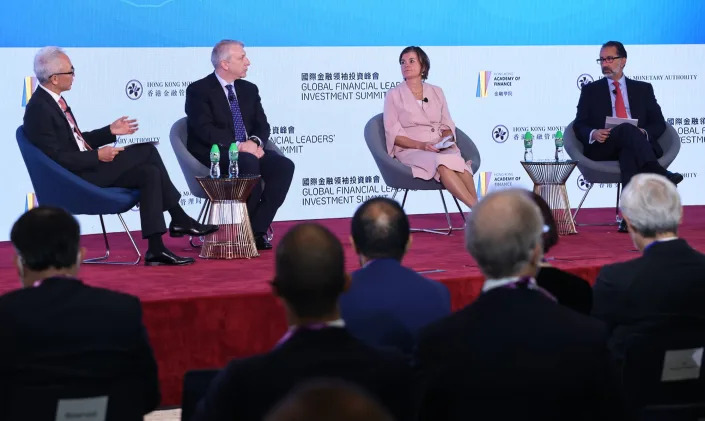
Photo: K. Y. Cheng alt=Photo: K. Y. Cheng>
As Federal Reserve's rampant rate increases turn markets cloudy, investors should focus on fundamentals, money managers say
The outlook for equity investors is cloudy as rising interest rates could tip many economies into recession and hit corporate earnings, State Street CEO says
With volatility set to play a bigger role in markets, investors should revisit their portfolio to get the right balance between growth and value, Wellington CEO says
The era of high return on investment is over, and the focus should be on value amid looming market uncertainty, according to top money managers, as the Federal Reserve left open the possibility of further rate increases after delivering another steep rate increase.
"We are of the belief that the Fed will do whatever it takes to tame inflation," Cyrus Taraporevala, president and CEO of State Street Global Advisors, one of world's largest asset managers managing nearly US$$3.26 trillion, said at the Global Financial Leaders' Investment Summit in Hong Kong on Thursday.
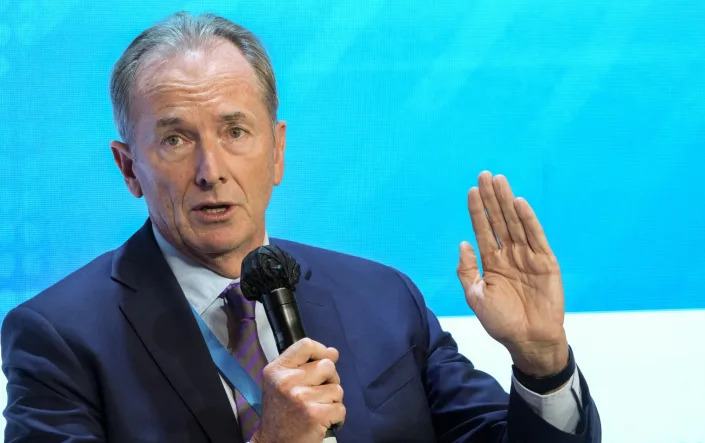
Photo: Sam Tsang alt=Photo: Sam Tsang>
Inflation, geopolitical tensions will cast a shadow on an uncertain global economy next year, say top bankers
Speakers on the first panel at a global investor summit discussed the impact of inflation and geopolitical tensions on the world economy
The era of low global inflation is over for now, said James Gorman, chairman and CEO of Morgan Stanley
Inflation and geopolitical tensions are the two main risks hanging over a global economy that is still reeling from the Covid-19 pandemic, Russia's invasion of Ukraine and rising interest rates, according to leading global financiers who spoke at an international financial summit in Hong Kong on Wednesday.
The world will be clouded by "a significant amount of uncertainty" in 2023, but central banks will step in to tame inflation amid the transition from economic expansion to economic contraction, they said.
Read more

Photo: Enoch Yiu. alt=Photo: Enoch Yiu.>
Hong Kong can take the lead to set disclosure example in sustainable financing, bankers say
Each of Hong Kong's 2,500 listed companies must put numbers on potential impact from extreme climate events, according to draft rules due for final approval in 2023
Any fund manager with a portfolio larger than US$1 billion must disclose the emissions data of companies they invest in, starting this month, the SFC says
Hong Kong can take the lead in promoting sustainable finance in the Asia-Pacific, as the city is among the first to incorporate disclosures for environment, social and corporate governance (ESG) in its audit and listing rules, global bankers said.
Each of Hong Kong's 2,500 listed companies must put numbers on potential impact from extreme climate events like severe typhoons and rising sea levels, according to draft rules due for final approval in 2023. Any fund manager with a portfolio larger than US$1 billion must disclose the emissions data of companies they invest in, starting this month, according to the Securities and Futures Commission (SFC).
Read more

Photo: Shutterstock Images alt=Photo: Shutterstock Images>
Cryptocurrencies, blockchain are reshaping future of finance, say global banking chiefs
The biggest challenge for institutions is navigating security issues related to public blockchain networks, says Daniel Pinto, COO of JP Morgan
Senior figures from JPMorgan, BlackRock, HSBC and Standard Chartered shared their thoughts at a global banking summit in Hong Kong
Technologies such as blockchain and central bank digital currencies are reshaping the future of finance, leaders of major banks said during a global financial conference in Hong Kong.
Senior figures from JPMorgan, BlackRock, HSBC and Standard Chartered shared their thoughts on how the fintech industry is shaking up the banking sector during a panel discussion at the Global Financial Leaders' Investment Summit on Wednesday.
This article originally appeared in the South China Morning Post (SCMP)
Copyright (c) 2022. South China Morning Post Publishers Ltd. All rights reserved.
